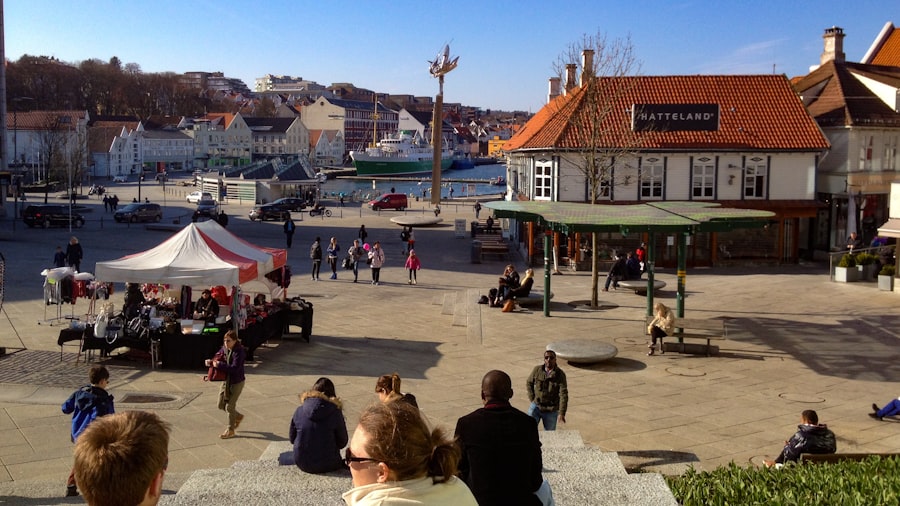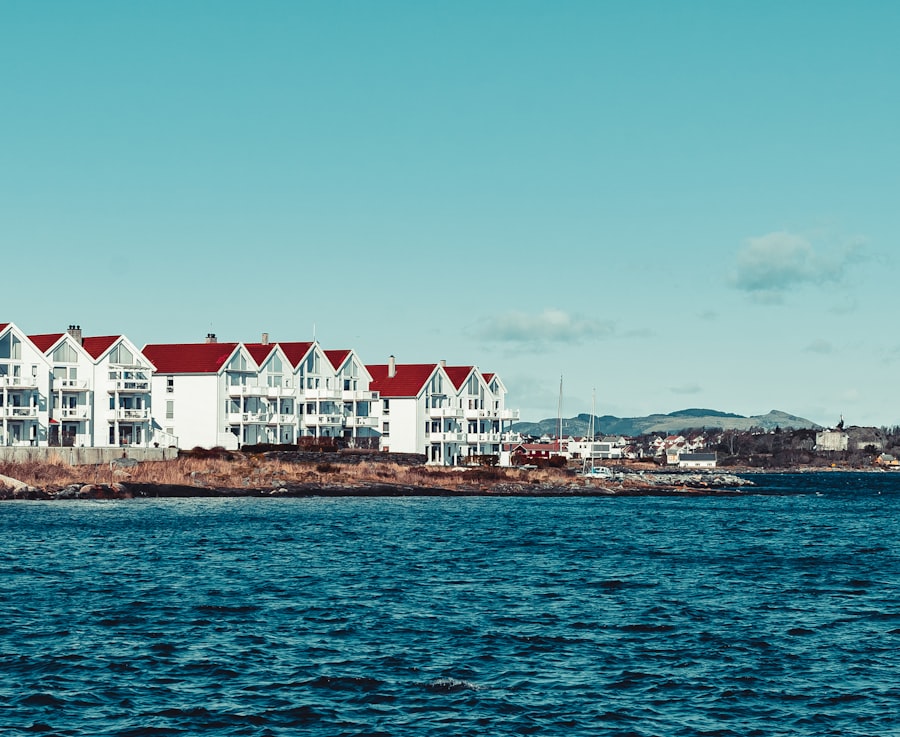Navigating the world of rental contracts in Norway can be a daunting task, especially for newcomers. The Norwegian rental market is governed by specific laws and regulations that ensure both landlords and tenants are protected. Understanding these contracts is crucial for anyone looking to rent a property in Norway, whether for a short-term stay or a long-term residence.
The Norway Relocation Group can be an invaluable resource in this process, offering guidance and support to help you understand the intricacies of rental agreements and ensuring that you are well-informed before signing any contract. The rental landscape in Norway is characterised by a strong emphasis on tenant rights, which is a significant aspect of the rental contracts. These contracts typically outline the responsibilities of both parties, the duration of the lease, payment terms, and other essential details.
For those unfamiliar with the Norwegian system, it can be beneficial to seek assistance from professionals who understand the local market. The Norway Relocation Group can provide insights into the nuances of rental agreements, helping you to navigate potential pitfalls and ensuring a smooth transition into your new home. Plan your relocation with confidence. Book a personal meeting with the Norway Relocation Group today. https://norwayrelocation.no/one-hour-strategy-session/
Summary
- Norwegian rental contracts are typically for a fixed term, usually one year, and can be renewed if both parties agree.
- Rent is usually paid monthly in advance, and it is common for the tenant to cover utilities and other expenses.
- The landlord is responsible for major repairs and maintenance, while the tenant is responsible for minor repairs and upkeep.
- Subletting and Airbnb are generally not allowed without the landlord’s permission, and there are strict regulations in place.
- Termination of the contract requires a notice period of three months, and the deposit is typically one to three months’ rent.
Duration of the Contract
The duration of rental contracts in Norway can vary significantly, depending on the type of lease agreement you enter into. Generally, there are two main types of contracts: fixed-term leases and open-ended leases. A fixed-term lease is typically set for a specific period, often ranging from six months to two years.
This type of contract provides stability for both the tenant and the landlord, as it clearly defines the length of the tenancy. On the other hand, open-ended leases do not have a predetermined end date, allowing tenants to stay as long as they wish, provided they adhere to the terms of the agreement. It is essential to carefully consider which type of contract best suits your needs.
If you are uncertain about your long-term plans in Norway, an open-ended lease may offer more flexibility. However, if you are confident about your stay, a fixed-term lease could provide a sense of security. The Norway Relocation Group can assist you in evaluating your options and help you choose the most appropriate contract type based on your circumstances and future plans.
Rent and Payment Terms

Rent and payment terms are critical components of any rental contract in Norway. Typically, rent is paid monthly, and the amount is specified in the contract. It is important to note that rent prices can vary significantly depending on the location, size, and condition of the property.
In urban areas like Oslo, rental prices tend to be higher compared to rural regions. Therefore, it is advisable to conduct thorough research on current market rates before committing to a rental agreement. In addition to the base rent, tenants should also be aware of any additional costs that may be included in the contract.
These can encompass utilities such as electricity, water, and internet services. Some landlords may include these costs in the rent, while others may require tenants to pay them separately. Understanding these payment terms is crucial to avoid any unexpected financial burdens during your tenancy.
The Norway Relocation Group can provide valuable insights into typical rental costs in various regions, helping you budget effectively for your new home.
Maintenance and Repairs
Maintenance and repairs are vital aspects of any rental agreement in Norway. The responsibility for upkeep is typically shared between landlords and tenants, although specific obligations may vary depending on the terms outlined in the contract. Generally, landlords are responsible for ensuring that the property is habitable and safe, which includes addressing issues such as plumbing problems, electrical faults, and structural repairs.
Tenants, on the other hand, are expected to maintain the property in good condition and report any issues promptly. It is essential to clarify these responsibilities before signing a rental contract to avoid misunderstandings later on. A well-drafted agreement should specify who is responsible for what types of maintenance and repairs.
In cases where disputes arise regarding maintenance issues, having a clear understanding of your rights and obligations can be beneficial. The Norway Relocation Group can assist you in interpreting these clauses within your contract and provide guidance on how to address maintenance concerns effectively.
Subletting and Airbnb
Subletting can be a contentious issue in Norwegian rental agreements. Many landlords prohibit subletting altogether or require explicit permission before tenants can rent out their space to others. This restriction is often put in place to protect the landlord’s interests and ensure that their property is not misused or damaged by subtenants.
If you are considering subletting your apartment or listing it on platforms like Airbnb, it is crucial to review your rental contract carefully. In some cases, landlords may allow subletting under certain conditions or for specific periods. If you believe that subletting could be beneficial for your situation, it is advisable to discuss this with your landlord before signing the contract.
Open communication can help establish trust and may lead to a more flexible arrangement. The Norway Relocation Group can provide guidance on how to approach this conversation with your landlord and help you understand your rights regarding subletting.
Termination and Notice Period

Understanding the termination process and notice period is essential when entering into a rental agreement in Norway. The notice period typically varies depending on whether you have a fixed-term or open-ended lease. For fixed-term leases, tenants usually cannot terminate the contract early without incurring penalties unless there are extenuating circumstances.
In contrast, open-ended leases generally require a notice period of three months from either party wishing to terminate the agreement. It is crucial to adhere to these notice periods to avoid potential legal complications or financial penalties. If you find yourself needing to terminate your lease early, it is advisable to communicate openly with your landlord and explore possible solutions together.
The Norway Relocation Group can assist you in understanding your rights regarding termination and help facilitate discussions with your landlord if necessary.
Deposit and Insurance
A security deposit is a common requirement in Norwegian rental agreements, typically amounting to one or two months’ rent. This deposit serves as protection for landlords against potential damages or unpaid rent during the tenancy. It is essential to ensure that the terms regarding the deposit are clearly outlined in your rental contract, including how it will be held and under what conditions it will be returned at the end of your tenancy.
In addition to the deposit, tenants may also want to consider obtaining renters’ insurance. While not mandatory, this insurance can provide additional protection against personal property loss or damage within the rented premises. It can also cover liability in case of accidents that occur within the property.
The Norway Relocation Group can offer advice on how to navigate these financial aspects of renting in Norway and help you understand what insurance options may be available.
Pets and Smoking
When renting a property in Norway, it is essential to consider any restrictions regarding pets and smoking that may be included in your rental agreement. Many landlords have specific policies concerning pets; some may allow them with certain conditions, while others may prohibit them altogether. If you have pets or plan to acquire one during your tenancy, it is crucial to clarify this aspect with your landlord before signing the contract.
Similarly, smoking policies can vary widely among landlords. Some properties may be designated as non-smoking environments, while others may allow smoking but with restrictions on where it can occur. Understanding these rules upfront can help prevent conflicts later on during your tenancy.
The Norway Relocation Group can assist you in finding pet-friendly accommodations or properties with smoking policies that align with your lifestyle preferences.
Renovation and Alterations
Renovating or making alterations to a rented property can be a sensitive topic within Norwegian rental agreements. Generally, tenants are not permitted to make significant changes without obtaining prior consent from their landlord. This includes alterations such as painting walls, installing new fixtures, or making structural changes.
It is essential to review your rental contract carefully for any clauses related to renovations or alterations before proceeding with any changes. If you wish to personalise your living space through minor adjustments or improvements, it is advisable to discuss these plans with your landlord first. Open communication can lead to mutually beneficial arrangements that enhance your living experience while respecting the property owner’s rights.
The Norway Relocation Group can provide guidance on how to approach discussions about renovations with your landlord and help ensure that any agreements are documented appropriately.
Dispute Resolution
Disputes between landlords and tenants can arise for various reasons during a tenancy, ranging from maintenance issues to disagreements over deposits or lease terms. In Norway, there are established procedures for resolving such disputes amicably before resorting to legal action. It is advisable for both parties to attempt open communication first; many issues can be resolved through dialogue without escalating tensions.
If direct communication fails, tenants have access to mediation services that can facilitate discussions between landlords and tenants in an impartial setting. Additionally, if disputes remain unresolved, legal avenues are available through local courts or tenancy boards that specialise in housing matters. The Norway Relocation Group can provide valuable resources and support throughout this process, helping you understand your rights and options should disputes arise during your tenancy.
Conclusion and Additional Resources
In conclusion, understanding Norwegian rental contracts is essential for anyone looking to rent property in Norway successfully. From comprehending payment terms and maintenance responsibilities to navigating subletting policies and dispute resolution processes, being well-informed will empower you as a tenant. The Norway Relocation Group stands ready to assist newcomers by providing expert guidance tailored to individual needs throughout this journey.
As you embark on this exciting new chapter in Norway, consider enrolling in Norwegian courses at the NLS Norwegian Language School in Oslo as well. Learning the language will not only enhance your ability to communicate effectively with landlords but also enrich your overall experience living in this beautiful country. With support from both the Norway Relocation Group and language education opportunities at NLS, you will be well-equipped for a successful transition into Norwegian life.
Register for a Norwegian class at the NLS Norwegian Language School now!

